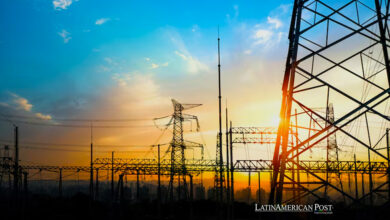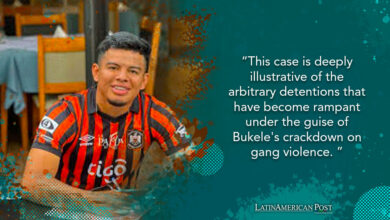Rwanda and Arsenal: the most controversial sponsorship
Rwanda and the Arsenal sign a sponsorship agreement for 30 million euros, an alliance that has been criticized by the United Kingdom and the Netherlands

Paul Kagame, president of Rwanda for 18 years, is a passionate fan of the Arsenal soccer team and it is not uncommon to show his feelings through his active Twitter account. The president has not hesitated to point out in several occasions that the fault that the London club takes years without winning a prestigious title is the owners. The former coach, Arsène Wenger, has also not been spared of his criticism either.
Leer en español: Ruanda y el Arsenal: el patrocinio más polémico
My take on my beloved Club Arsenal- a very good one at the game and a very good coach like a.Wenger, this should not have been the kind of ending of an era. The coach is leaving and club trophy-less it was long coming! I am still a committed fan going forward :). Blame the owners
– Paul Kagame (@PaulKagame) May 3, 2018
As I had said way back and just as a good observer … something fundamental needed to change at / about the club. But if anything changed it was not the right one. All the best to all involved! We still need Arsenal to go back where it belongs- up there among the best in the game!
– Paul Kagame (@PaulKagame) May 3, 2018
However, this has not been an impediment for Kagame to sign an sponsorship agreement with "The Gunners" and for the name of Rwanda to appear on the players t-shirts. The sponsorship supposes a disbursement on the part of the small African country of 30 million euros in three years. This alliance has caused discomfort for the United Kingdom, which allocates more than 50 million pounds per year for development projects in Rwanda. Moreover, government sources describe the agreement as "wasteful", according to As newspaper.
It is paradoxical that an underdeveloped country like Rwanda can cope this millionaire sponsorship with one of the richest clubs in the world. Undoubtedly, the Arsenal has a pull and its success in Africa is known, because only in 2017 the English club billed 487.6 million euros, making it the sixth most wealthy soccer team on the planet. An important part of that income comes from the prestigious airline Emirates, which pays 34 million a year for its logo to look on the front of the shirt. So, starting next season the slogan Visit Rwanda will appear on the sleeves.
The United Kingdom suspects that the money they send for cooperation and development in Rwanda is being used to pay for the sponsorship, criticisms to which Holland has joined, a nation that also helps the African country. The Government of Kagame has not been slow in responding: "the contributions of the United Kingdom or Holland are destined to a large extent to improvements in the justice. The money from the sponsorship with Arsenal comes exclusively from our tourism income, which does not stop growing. This alliance with the English club aims that foreigners continue to visit our country in order to stop relying on foreign donations."
To defend its position, Rwanda has brought up the figures: in 2017, tourism entered 346 million euros, an amount that is to be raised to 800 million by 2024. The number of British who visited the Central African Republic increased by 21% on last year, so the sponsorship with the Arsenal, which will also wear the slogan "Visit Rwanda" on the billboards of its stadium, is considered of great importance and, according to Rwandan sources, only 3% of the 346 million admitted by tourism will be used to pay the alliance with "The Gunners". This advertising effort aims to undo the link between Rwanda and the brutal genocide that bled the country in 1994.
Clare Akamanzi, head of the Rwanda Development Board, went beyond the numbers: "they criticize us because we are a poor country and we receive foreign aid, but those who reject this sponsorship seem to want us to continue like this. In any business investment in marketing is fundamental, the more we earn in tourism the more we can invest in people." However, this explanation does not seem enough if one asks: why not invest that money directly in education or basic services such as water or electricity?
Although Rwanda has improved considerably in all aspects in the last two decades, it still depends on external aid, which accounts for 17% of its annual budget. And although this small country grows at a rate of 5%, 60% of the population lives with just 1.5 euros per day and the United Nations (UN) places it at 159 out of 188 in the Index of Human Development (IDH).
Latin American Post | José María González Alonso
Translated from "Ruanda y el Arsenal: el patrocinio más polémico"





